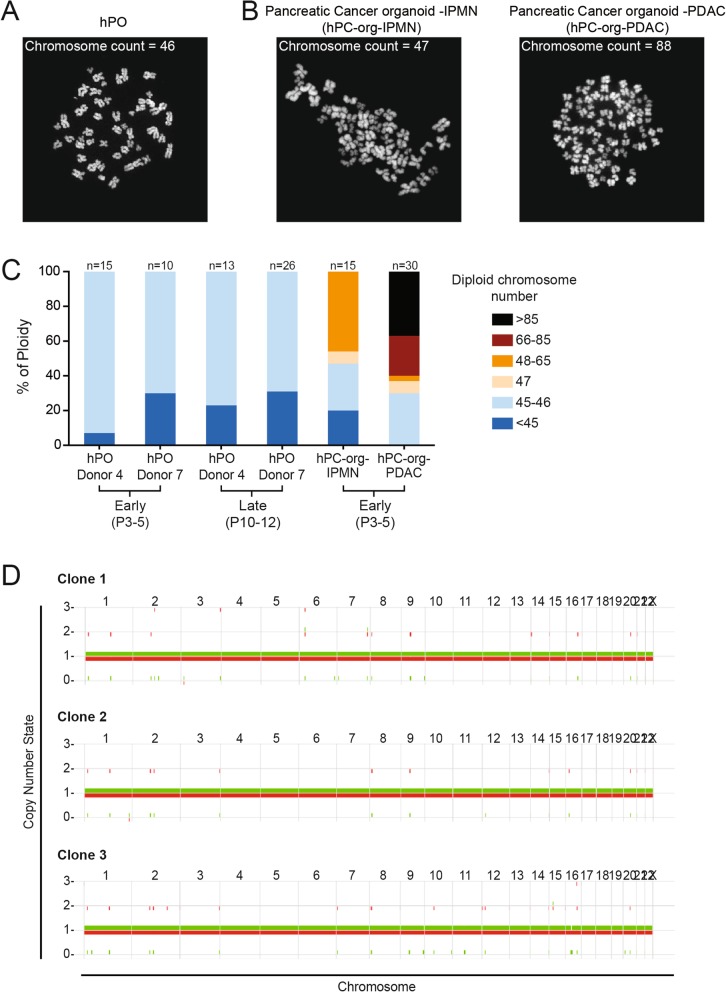Fig. 3.
Human pancreatic organoids (hPOs) expanded long-term in culture maintain chromosomal stability over time. a-b Representative images of chromosome spreads used for counting from (a) healthy human pancreas derived organoids and (b) pancreas cancer derived organoids (generated from pancreatic tumour tissue; Intraductal Papillary Mucinous Neoplasm (hPC-org-IPMN) and Pancreatic Ductal Adenocarcinoma (hPC-org-PDAC). c) Chromosome spreads were prepared and counted from early (P3–5) and late (P10–12) passage cultures. Note that hPOs generated from healthy donors do not display increased chromosomal counts (above 46) indicating hPOs maintain normal chromosome numbers during in vitro culture, whilst this is not the case for pancreas cancer organoids, as previously reported [21]. The number of chromosome spreads counted per condition is detailed above the graph. D) ASCAT copy number plots of three clonal hPO cultures show that hPOs do not exhibit loss of chromosomes or large structural rearrangements during in vitro culture (clonal expansion of 5 weeks). The copy-number state for each chromosome is shown on the Y-axis, with one allele coloured in red and the other in green. Chromosomes are labelled along the top of the graphs

